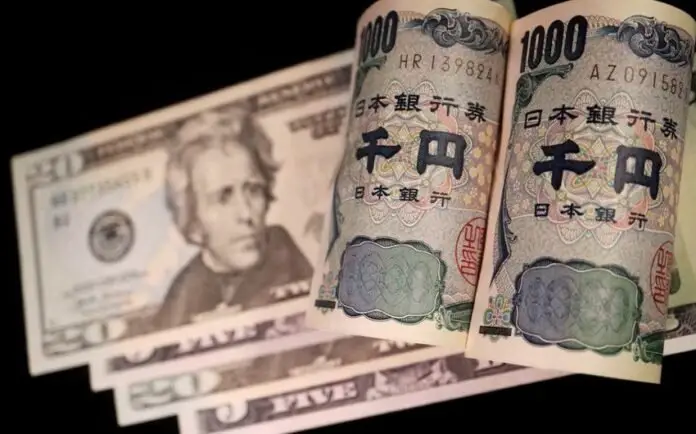By Agencies
Japanese institutions have long been key players in the U.S. Treasury market, but a significant rise in Japanese government bond yields could pose a serious risk for U.S. bondholders.
This shift may prompt Japanese investors to move their capital back home just as global demand for U.S. debt starts to decline.
Analysts at Macquarie warn that there may come a point when Japanese investors decide to repatriate their funds.
“Traders are sensing that this trigger point is approaching, which is why USD/JPY is under pressure as JGB yields increase,” they noted in a recent report.
As of Q1 2025, Japanese entities, including official reserves, hold about $1.13 trillion in U.S. Treasury securities, making them the largest foreign holders.
However, after years of ultra-low yields, Japan’s bond market is gaining momentum, narrowing the yield gap with U.S. bonds and diminishing the appeal of keeping capital in the U.S.
Recently, the 30-year JGB yield reached a record high of 3.185%, while the 40-year yield hit an all-time peak of 3.635%.
This change can be attributed to the Bank of Japan’s evolving stance on yield curve control, responding to rising inflation. Higher JGB yields are making domestic bonds more attractive.
Macquarie cautions that if JGB yields continue to increase significantly, the motivation for Japanese investors to export capital to the U.S. could flip to an incentive to bring capital back.
This could lead to a rapid shift in Japanese institutional portfolios away from Treasuries and towards JGBs, potentially destabilizing the dollar and U.S. interest rates.
Evidence of this pressure is already visible in the markets: a recent U.S. 20-year bond auction experienced lackluster demand from foreign buyers, causing yields to reach a two-year high and negatively impacting the dollar.
While the U.S. is not the only country facing rising yields—European Bunds and Gilts have also seen declines—Macquarie suggests that the dollar is particularly vulnerable due to foreign investors being “overweight in U.S. exposure” after years of strong performance.
Japan has long struggled with a significant debt issue. With a staggering 260% debt-to-GDP ratio, it holds the highest level among major economies. Newly appointed Prime Minister Shigeru Ishiba now faces the challenge of addressing these complex fiscal realities as the Bank of Japan shifts away from years of support for the bond market.
The Bank of Japan is unlikely to take immediate action through rate cuts or a return to strict yield curve control. Instead, it appears focused on maintaining financial stability and may increase JGB purchases only if yields rise too rapidly.
With Japanese investors increasingly attracted to their domestic bond market and global risks on the rise, the potential for capital flight from U.S. Treasuries—and the resulting volatility for the dollar and U.S. rates—remains a pressing concern.
The views and opinions expressed in this article are those of the author and do not necessarily reflect the official policy or position of Censational Market.

